

















![His lawyers and I wondered whether a jury could sympathize, given what he’d done. Chammah, in a light green dress shirt, sits at a table with Baldwin and Belcher’s defense attorney, a White man with a white goatee and wearing a dark blue polo shirt, who says, “That [line] between explanation and excuse is something we always have to be careful of.”](https://mirrorball.themarshallproject.org/eXYiZ9yaRoi7N0KG6JbttUTwUyYfybMJ8WmvOpn4pLI/w:1140/aHR0cHM6Ly90bXAt/dXBsb2Fkcy0xLnMz/LmFtYXpvbmF3cy5j/b20vMjAyMzEyMTQv/cGFuZWwtNS02LnBu/Zw.webp)
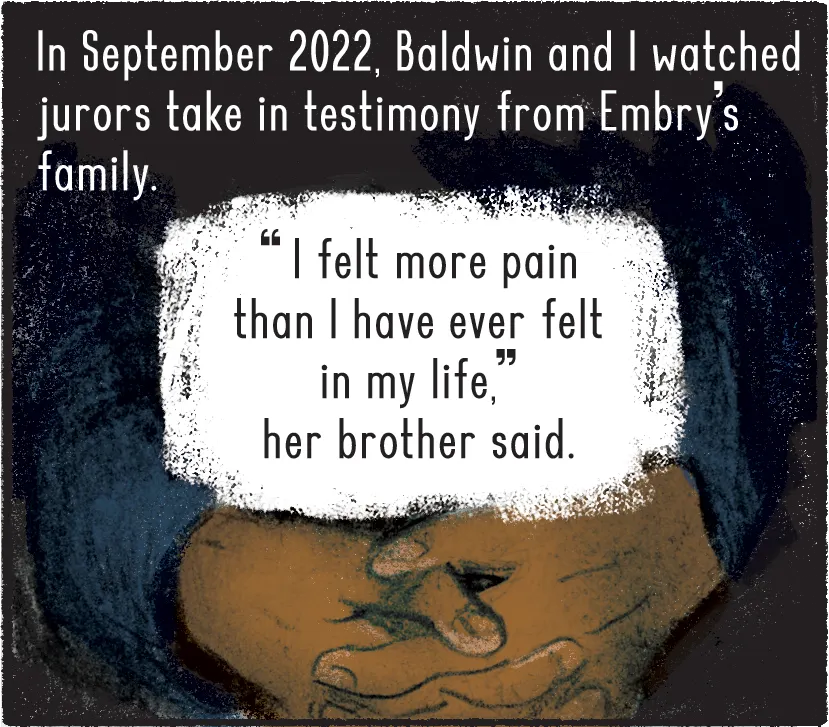
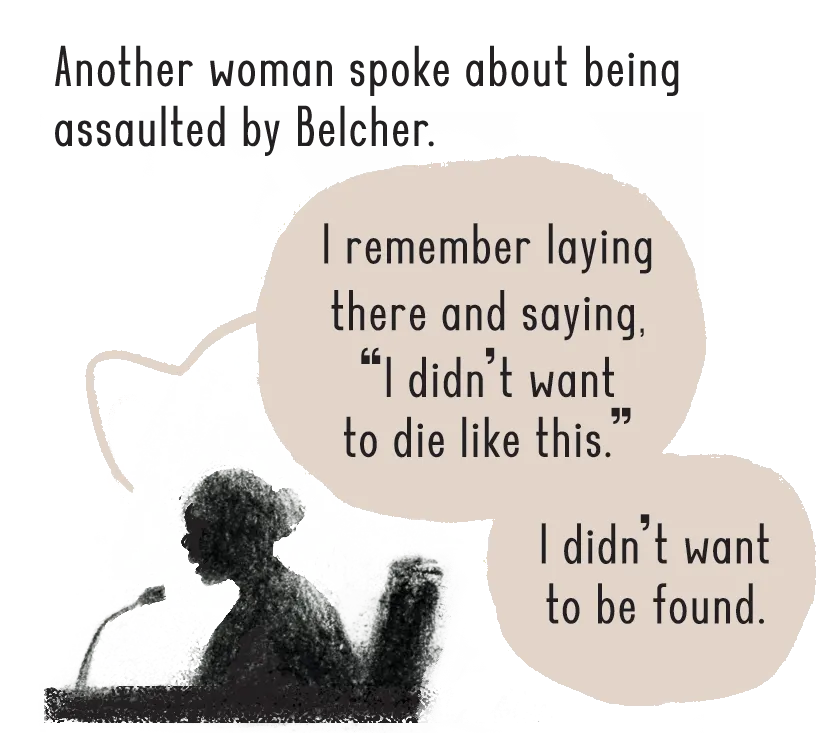

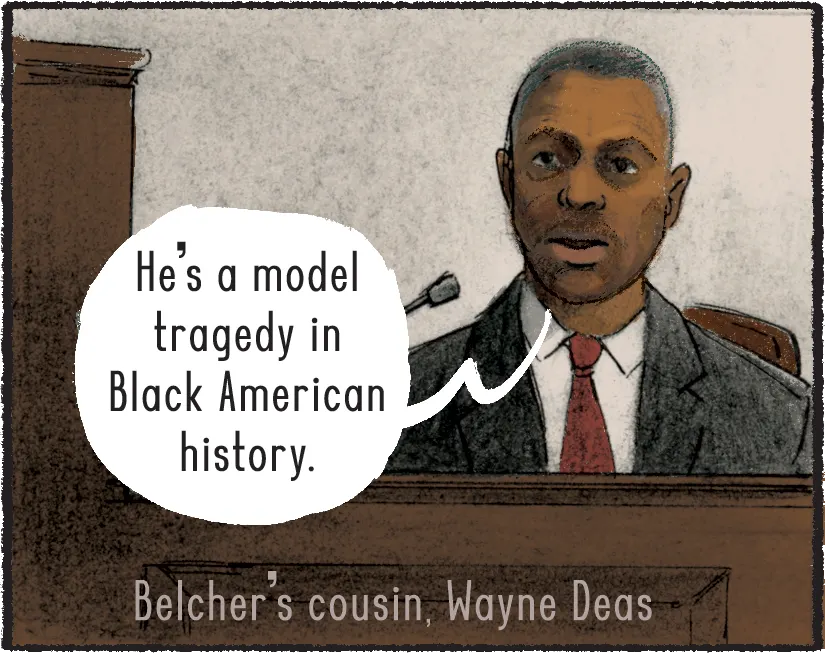

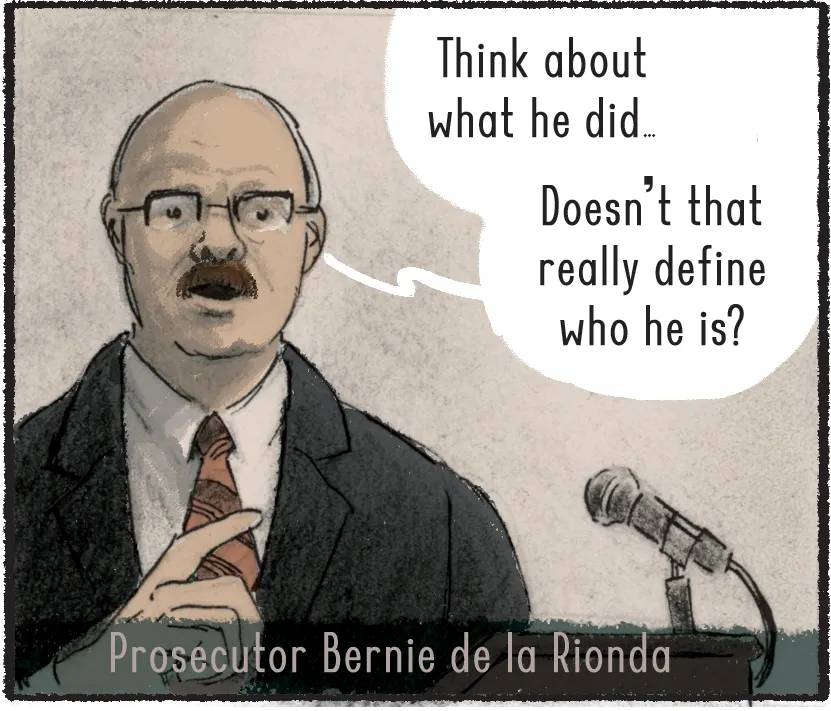

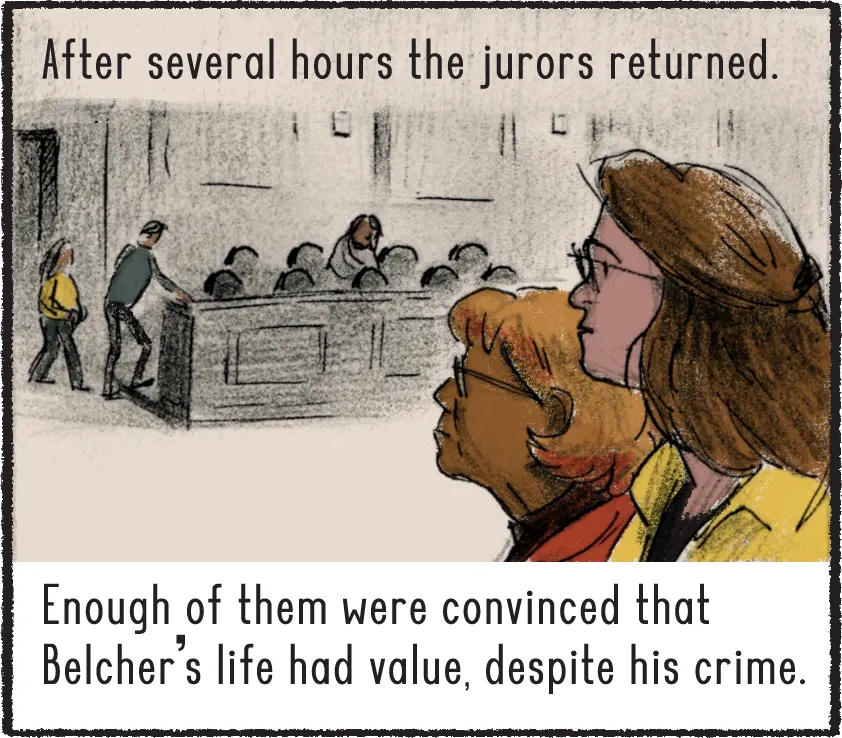
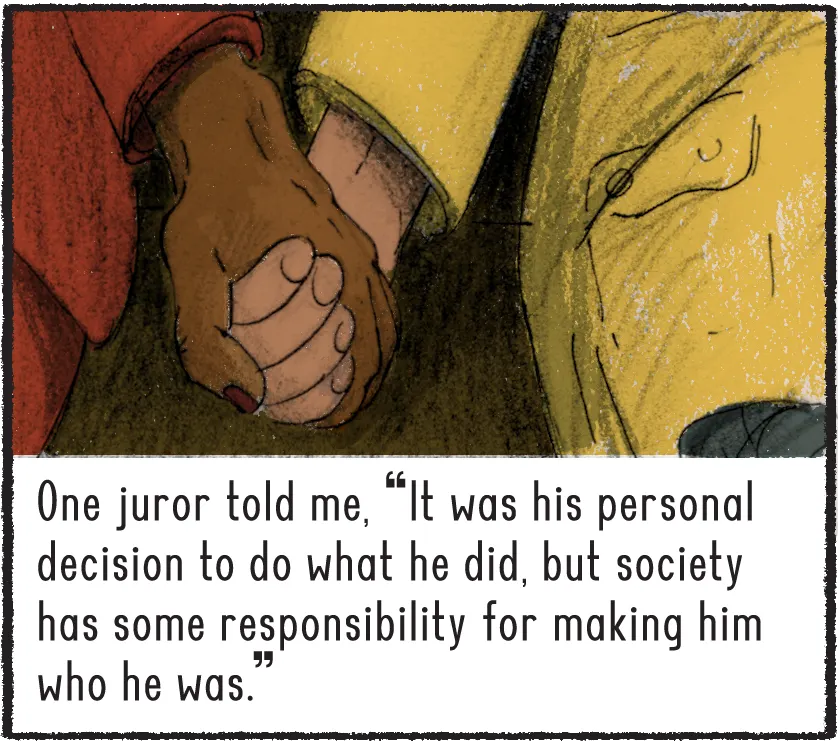
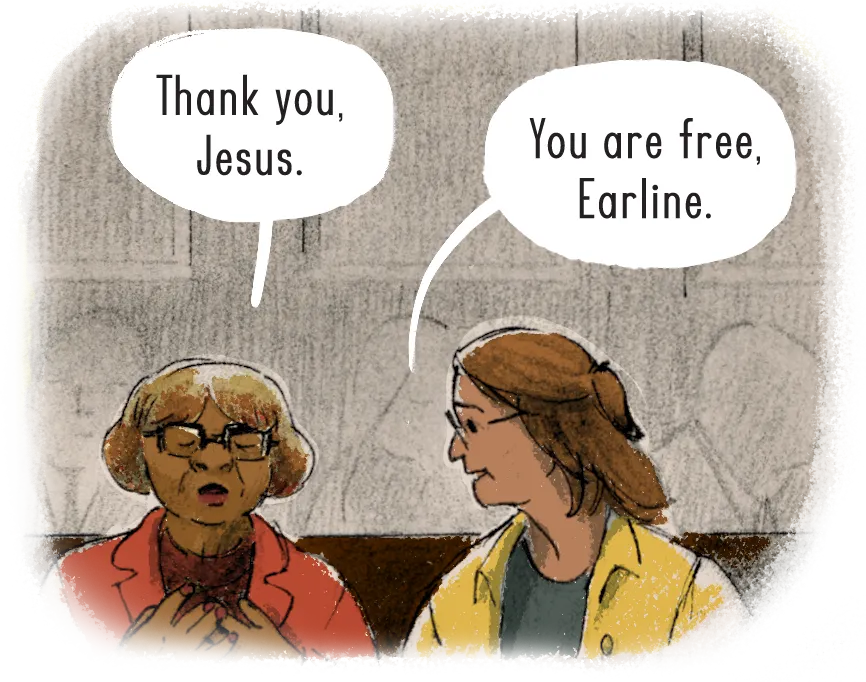
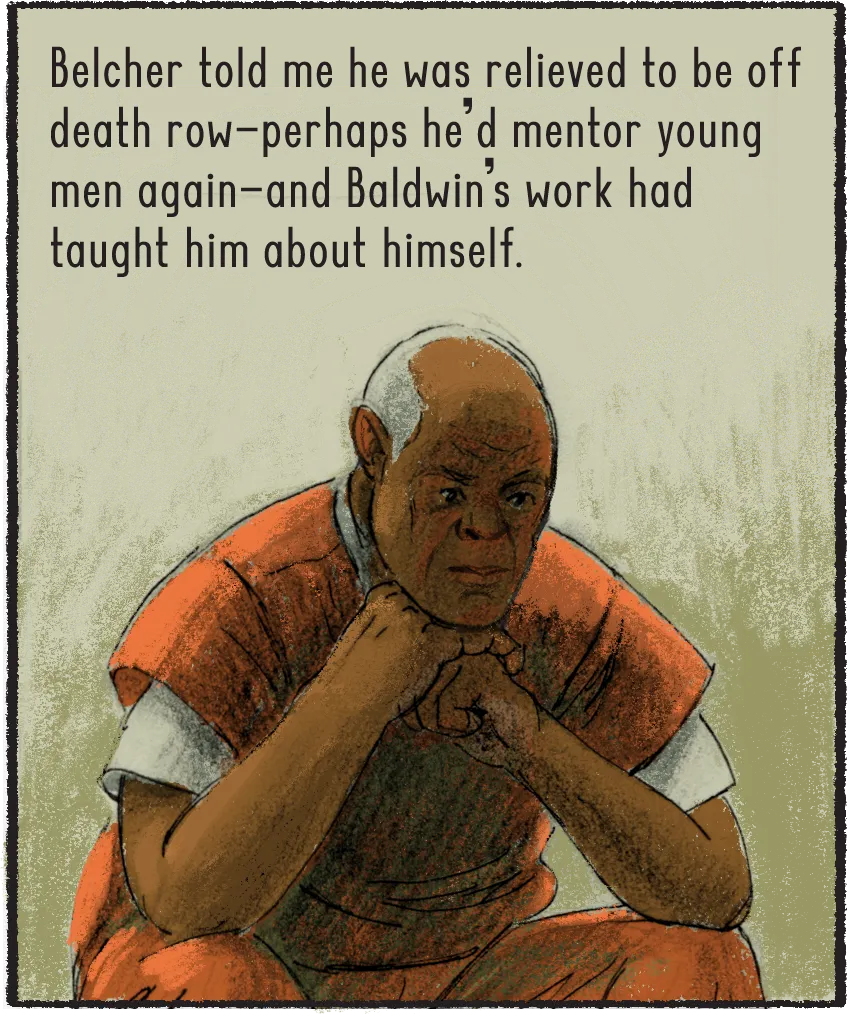
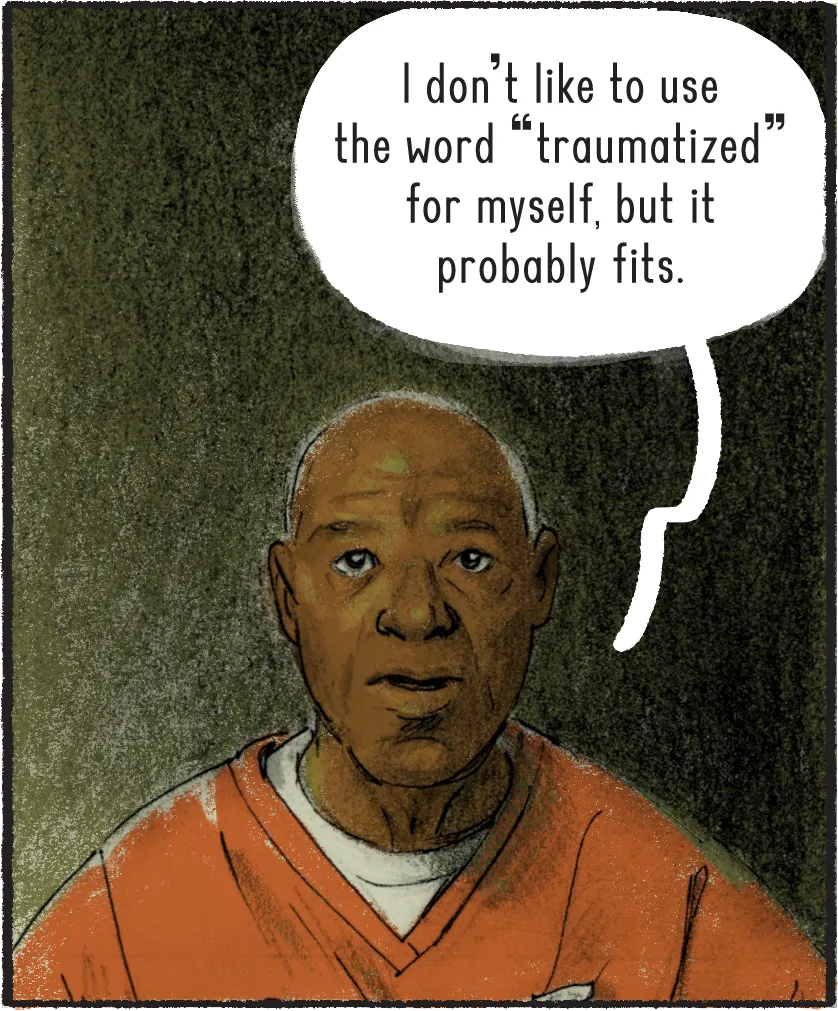





Jackie Roche is a cartoonist specializing in nonfiction comics about history and current events.
Read the original long-form narrative here.
CREDITS
Editors
Raghuram Vadarevu, Meredith Rizzo and Akiba Solomon
Production coordinator
Mara Corbett
Copy editor
Ghazala Irshad




